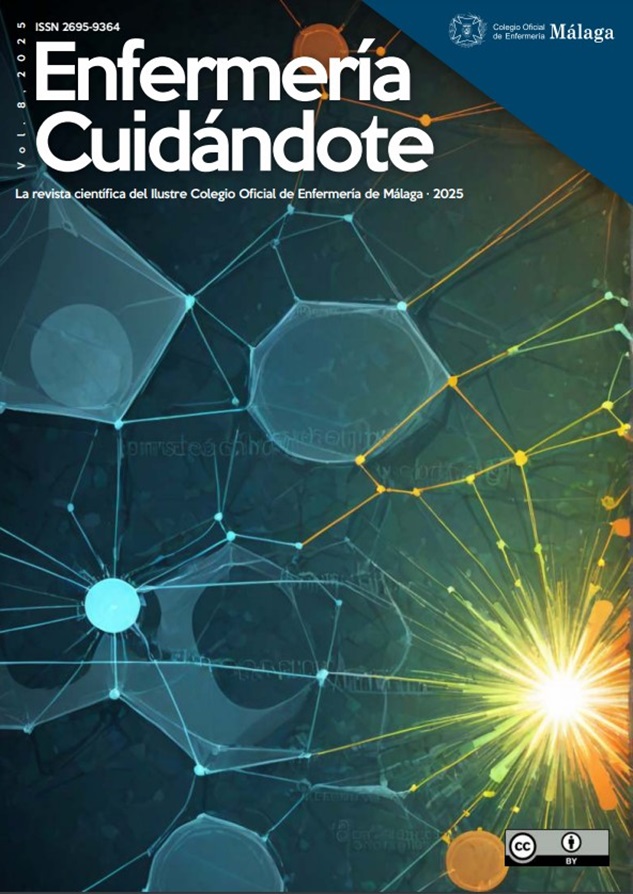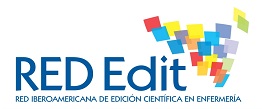Nursing Interventions associated with the application of TISS-28 in ICU patients
DOI:
https://doi.org/10.51326/ec.8.4709931Keywords:
Intensive Care, Intensive Monitoring, Nurse-Patient Relations, Nursing ActivitiesAbstract
Introduction: Nursing professionals in the ICU play a fundamental role in the care of critically ill patients, requiring technical knowledge, advanced skills, and emotional support for patients and families.
Objective: To analyze the nursing interventions associated with the application of the TISS-28 in the ICU of the Manuel Ygnacio Monteros General Hospital.
Methods: A quantitative, descriptive, and cross-sectional study was conducted with 23 nurses and all patients cared for during one month. Two instruments were used: a sociodemographic and work data sheet for the nursing staff and the TISS-28, which measures the degree of nursing interventions, with high validity and realiability.
Results: The nursing staff was predominantly female (95,7%), aged between 30-38 years, single (69,9%), and with third-level studies (95,7%). The work experience was predominantly between 1-10 years, and in the ICU between 1-5 years. According to the TISS-28, interventions such as standard monitoring (18%), mechanical ventilation (36%), use of central venous catheter (43%) and enteral nutrition (74%) stood out. The most frequent level of intervention was Grade III: Intensive monitoring (55,1%).
Conclusions: The TISS-28 is an effective tool to measure interventions in ICUs, demonstrating the high preparation and commitment of nursing staff. These interventions guarantee comprehensive and efficient care for critical patients, addresing the complexity of their clinical conditions.
Downloads
References
1. Pistoria MJ. Unidades de Cuidados Especiales. En: Manual MSD. New Jersey: Merck & Co; 2025. Disponible en: https://www.msdmanuals.com/es/hogar/temas-especiales/atenci%C3%B3n-hospitalaria/infecciones-adquiridas-en-el-hospital [Consultado 16-01-2025]
2. De Arco-Canoles OC, Suárez-Calle ZK. Rol de los profesionales de enfermería en el sistema de salud colombiano. Univ Salud. 2018;20(2):171-82. https://doi.org/10.22267/rus.182002.121
3. Benites Beltrán YP, Chacha Uto DG, Carchi Flores EM, Hurtado Hurtado HP, Castro Pomaquiza MM, Cruz Toro DE, et al. Manual práctico de Enfermería Intensiva: Cuidados y Procedimientos. Quito (Ecuador): Mawil; 2021. Disponible en: https://mawil.us/wp-content/uploads/2021/10/manual-practico-de-enfermeria-intensiva.pdf [Consultado 16-01-2025]
4. Simões JL, Sa-Couto P, Simões CJ, Oliveira C, Dos Santos NM, Mateus J, et al. Magalhães CP, Martins M. Nursing workload assessment in an intensive care unit: A 5-year retrospective analysis. J Clin Nurs. 2021;30(3-4):528-40. https://doi.org/10.1111/jocn.15570
5. Kisorio LC, Becker PJ. Validity and reliability of the simplified Therapeutic Intervention Scoring System in intensive care units of a public sector hospital in Johannesburg. South Afr J Crit Care. 2009;25(2):36-43. Disponible en: https://www.ajol.info/index.php/sajcc/article/view/52973 [Consultado 16-01-2025]
6. Alarcón-Chávez E, De Luna-López MC, Flores-Padilla L, Jaramillo-Beltrán M, Gómez-Jurado LJ, Brito-Cerino MI. Análisis de la distribución del tiempo en materia de cuidado crítico por profesionales de enfermería mediante TISS-28. 2021;17(2):162-72. https://doi.org/10.22201/eneo.23958421e.2020.2.771
7. Cabrera J, Francisco Pérez JI. Evaluación de la carga de trabajo de enfermería en UCI usando TISS 28 y NAS: Revisión sistemática. Rev Conecta Libertad;8(4):1-9. Disponible en: https://puceinvestiga.puce.edu.ec/es/publications/evaluaci%C3%B3n-de-la-carga-de-trabajo-de-enfermer%C3%ADa-en-uci-usando-tis [Consultado 16-01-2025]
8. Acosta Núñez JM, Sandoval Balarezo GM, Paredes Garcés MG, Supe Supe FA. Labor load in critical areas and “TISS 28”. Salud Cienc Tecnol. 2023;3:385. https://doi.org/10.56294/saludcyt2023385
9. Instituto Ecuatoriano de Seguridad Social. Hospital del IESS Loja cumple 33 años de servicio. Quito: Instituto Ecuatoriano de Seguridad Social; 25 de noviembre de 2022. Disponible en: https://tinyurl.com/5y7wkfxy [Consultado 16-01-2025]
10. Miranda DR, de Rijk A, Schaufeli W. Simplified Therapeutic Intervention Scoring System: the TISS-28 items--results from a multicenter study. Crit Care Med. 1996;24(1):64-73. https://doi.org/10.1097/00003246-199601000-00012
11. Lima D, Pinto C. Perfil sociodemográfico de la enfermería de cuidados intensivos y sus relaciones con el engagement y workaholism. Núcleo do Conhecimento. 2021;206–20. https://doi.org/10.32749/nucleodoconhecimento.com.br/salud/engagement-y-workaholism




















